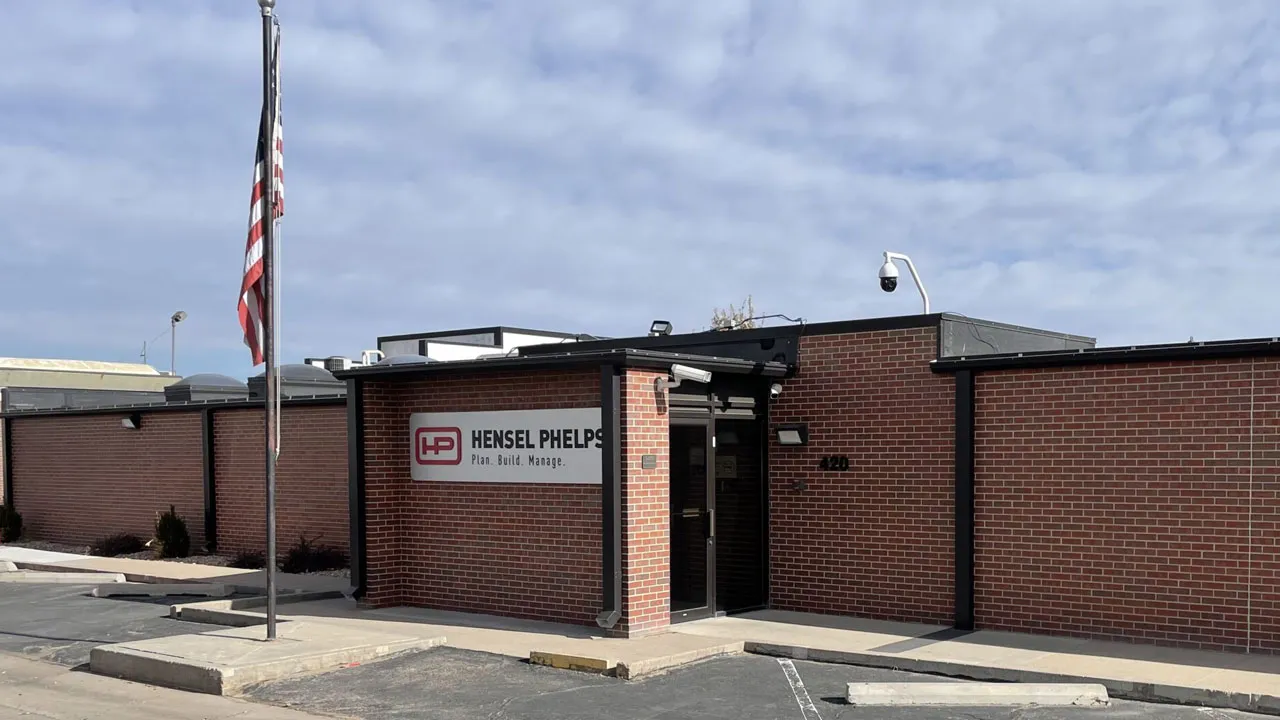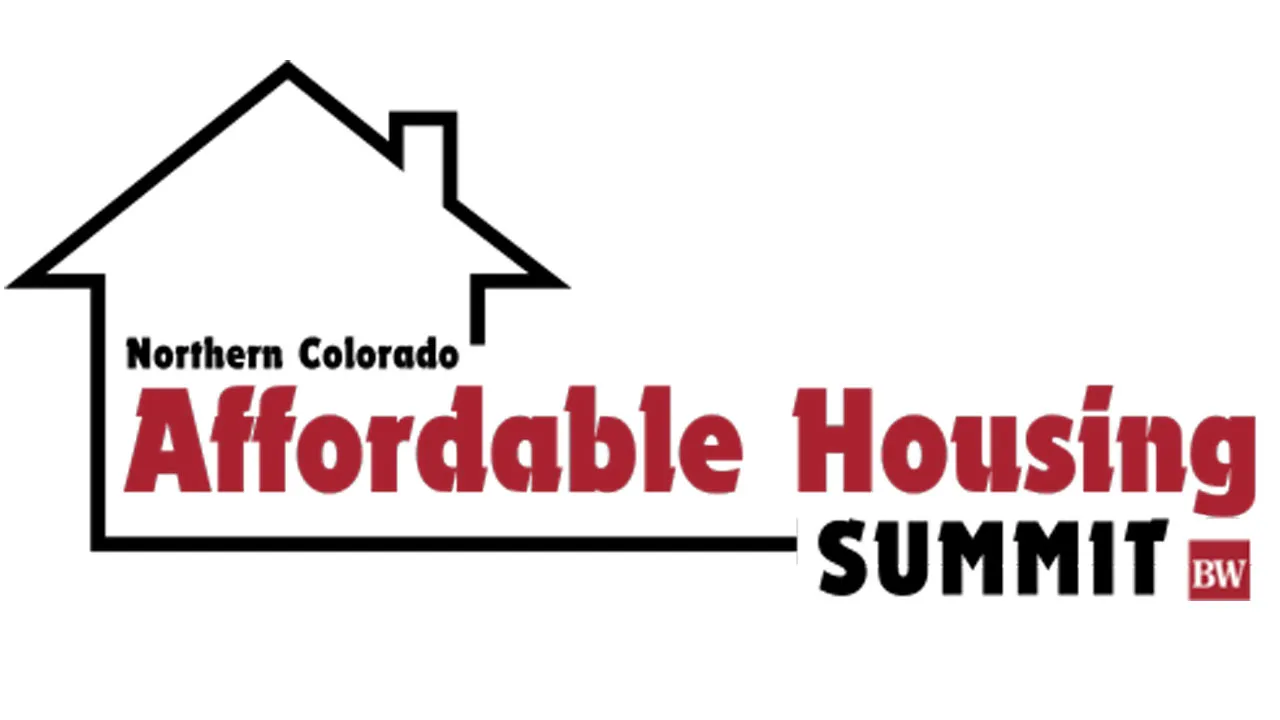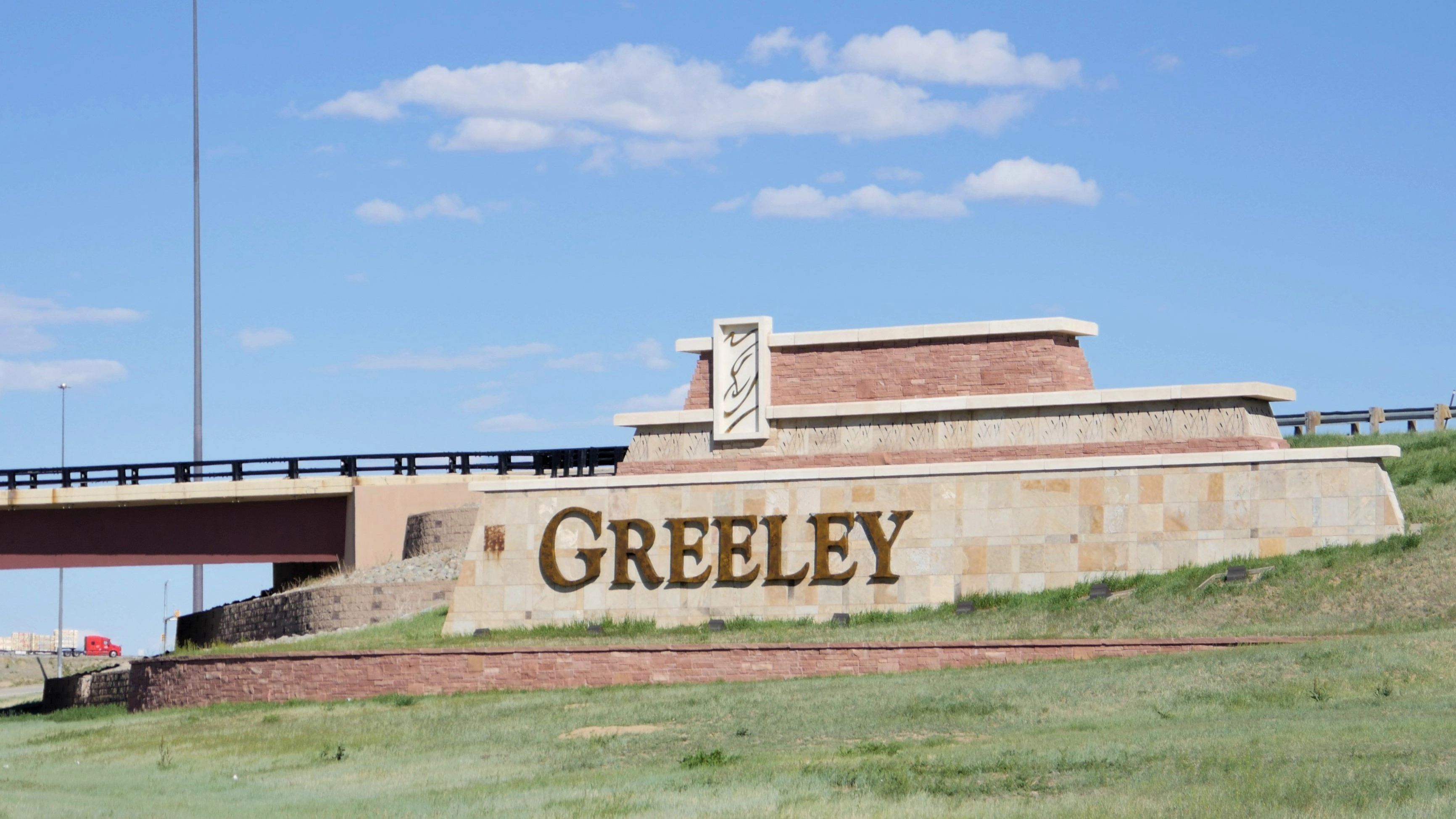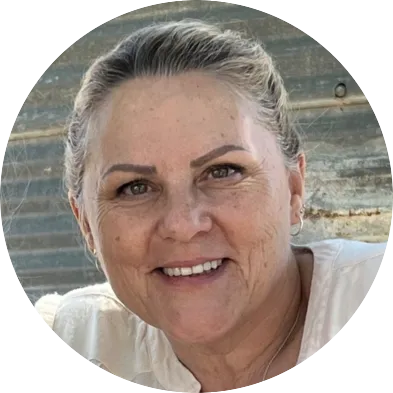A Habitat community of the future set to open Thursday
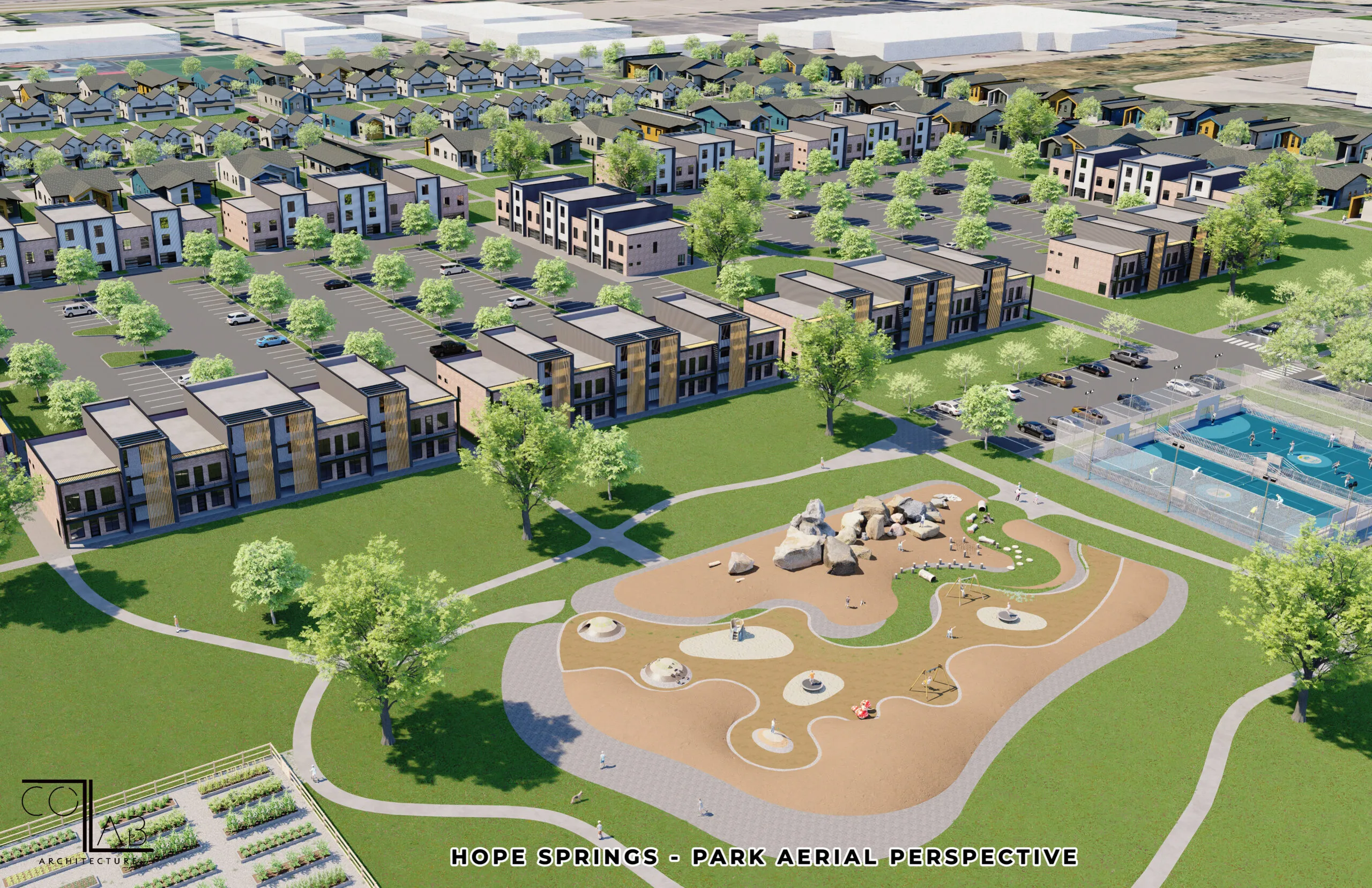
GREELEY — One by one, a project of a lifetime slowly unfurled before Cheri Witt-Brown’s eyes. What once was an idea for a 150-home Habitat for Humanity project suddenly morphed into a supersized version of a housing project that stretched the budgetary bounds of imagination.
Thursday, May 30, Witt-Brown, CEO of Greeley-Weld Habitat for Humanity, and others will unveil what will be: a Habitat community of the future, that once built out will have 491 housing units in single- and multi-family developments, walking and biking trails, two mini-pitch LED soccer fields, a community organic garden, a daycare center and a nature discovery park, all tucked in close to places to go to school, shop and work.
The project is called Hope Springs. If you see a crowd hovering near 23rd Avenue and 32nd Street in Greeley on Thursday, it’s all about hope.
SPONSORED CONTENT
“This is going to mean a lot to our town for a lot of reasons,” said Greeley mayor John Gates. “Number one, it gives us substantial housing that we need; and it will be affordable. … The reason the project came together is because that’s just the way Greeley is. The right folks came to the table, the city, private individuals and the state, and Cheri runs a good shop.”
According to Witt-Brown, the project seemed to grow exponentially with every handshake, chance meeting and discussion.
“Frankly, in the world of Habitat, there are miracles that happen to us not on a daily basis, but often,” Witt-Brown said as she discussed the project. The ribbon-cutting ceremony is set for noon to 2 p.m. with players from all levels of the project that will be the largest Habitat community in Colorado.
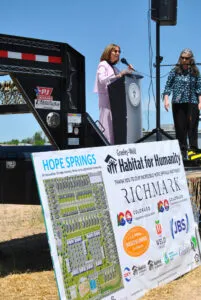
Through Witt-Brown’s many connections, the project started with a healthy $12 million in the bank.
Here’s how it went down:
Principals at Richmark Cos. learned that Habitat was building a home for a member of their church who had been left a quadriplegic from an accident.
“They came out, spent a volunteer day with us, and next thing I know, they decided to donate the land, which was a value of $8.8 million. That was a booster shot,” Witt-Brown said. “We had the capital and financing in place to do this development, but it would have taken us years to build the amount of housing units. But with that donation, that seeded the opportunity to start really shopping for investors.”
An aide for Sen. John Hickenlooper attended a Habitat breakfast, which led to a $2.557 million grant. Then JBS USA Holdings Inc., the major meatpacker in Greeley that Witt-Brown had been after for years to help out, suddenly found an open door for Witt-Brown to pitch her cause — housing for JBS workers.
“I had tried to give them something worthy to invest in for a number of years, and this was the project that had the scale and impact they could get behind,” Witt-Brown said. Another $2 million in the bank. “You have to give people something worth investing in.”
The pandemic helped illustrate the need for affordable housing, as well as the high cost of housing in today’s market.
“For me, it’s about the families,” she said. “To sit in my office when I first came in in 2015 and watch so many families walking through that door, knowing we could only help five was unacceptable.”
Recently, one of Habitat’s board members came through to help secure a $1 million donation from Occidental Petroleum. Together with other grants and gifts, the project was sitting pretty with $12 million in the bank.
Even the Greeley-Evans School District got involved, with officials waiving a $2,200-per-home development fee for the project.
Still, it will cost Habitat $7 million a year to build 50 homes each year, Witt-Brown said.
If Witt-Brown has her way, she will have convinced the owner of Colorado Premium Foods, a meatpacker that last year took over the old Kmart building, to put solar on his rooftop to help provide electricity for the homes in Hope Springs.
Finally, Habitat is partnering for a pilot project for Alquist 3D to build four homes, with 3D printed walls with cost-effective and environmentally responsible building materials. They will put up the first at the ground-breaking ceremony.
“When you do something this innovative, people want to be a part of it,” Witt-Brown said.
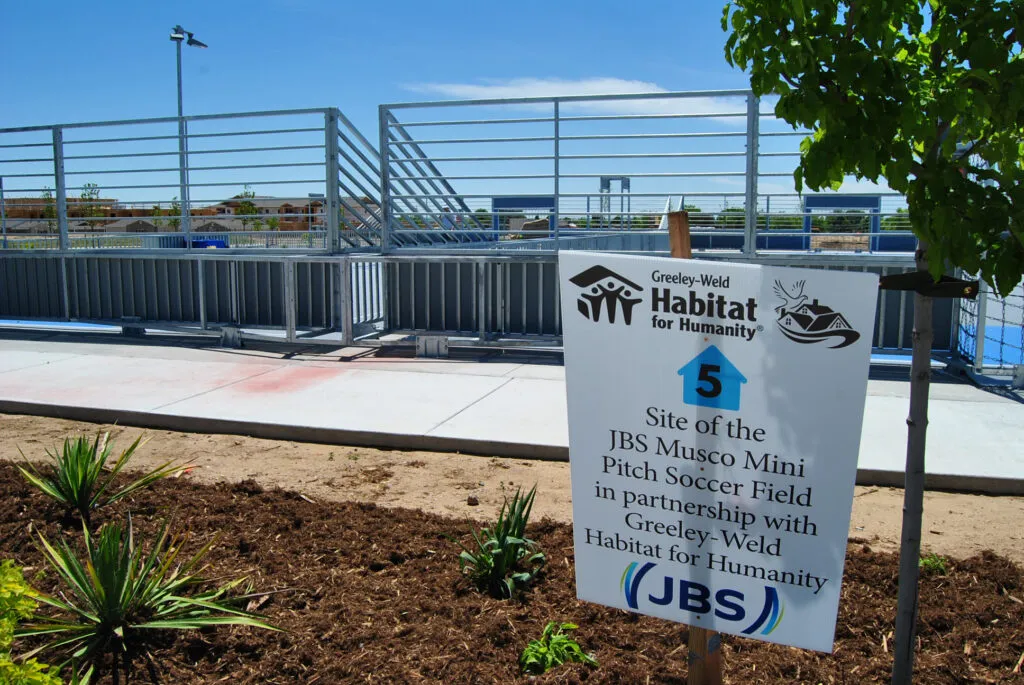
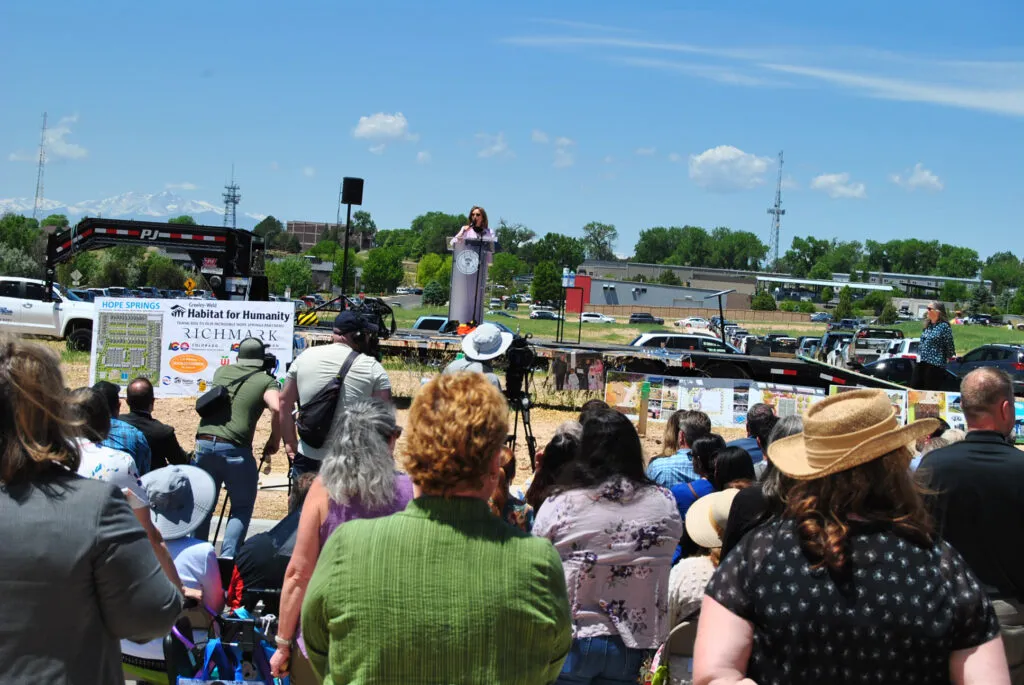
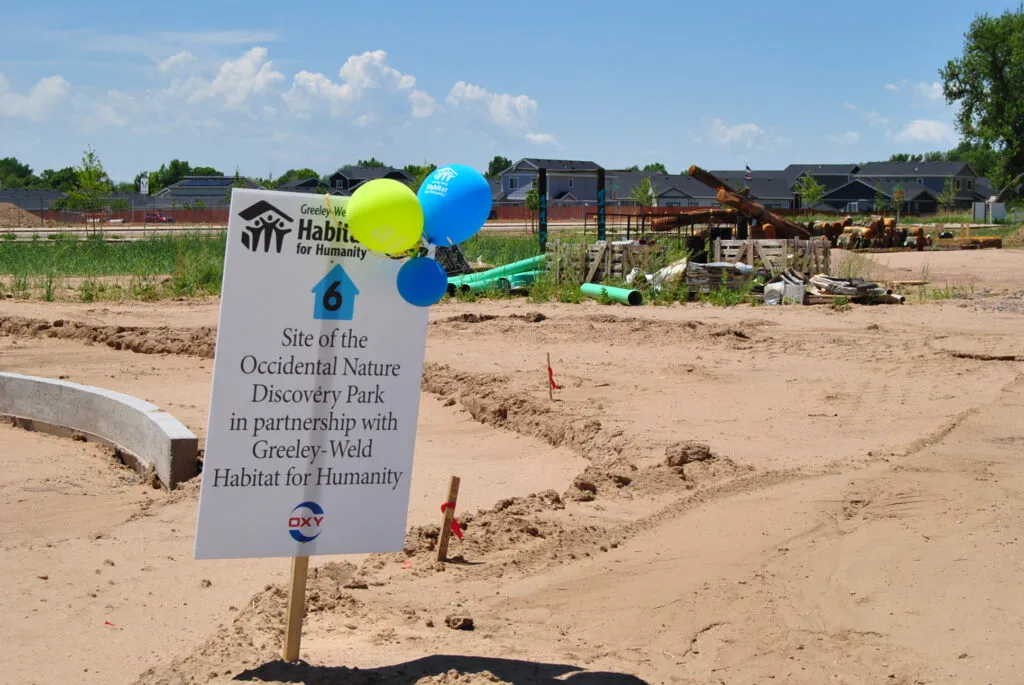
Donors for Colorado’s largest Habitat build
Multiple stakeholders got involved in funding Hope Springs, which will become the largest Habitat for Humanity project in Colorado:
- Richmark Cos. — $8.82 million (land and water donation).
- Congressionally Directed Spending award — $2.557 million secured by U.S. Sen. John Hickenlooper.
- Colorado Department of Local Affairs — $3 million grant.
- Weld Trust Foundation — $2.55 million grant.
- JBS USA — $2 million donation.
- Occidental Petroleum — $1 million donation.
- City of Greeley — $1 million civil infrastructure grant through the state Department of Local Affairs.
- City of Greeley — $1.3 million per year reimbursement of water and sewer taps and building permits that Habitat will pay for 40 homes for the 2024-2025 year.
- Habitat for Humanity International and Habitat Capital and Impact Development Fund — $3.5 million in below-market loans.
Cheri Witt-Brown, CEO of Greeley-Weld Habitat for Humanity, and others will unveil what will be: a Habitat community of the future, that once built out will have 491 housing units in single- and multi-family developments, walking and biking trails, two mini-pitch LED soccer fields, a community organic garden, a daycare center and a nature discovery park, all tucked in close to places to go to school, shop and work.


